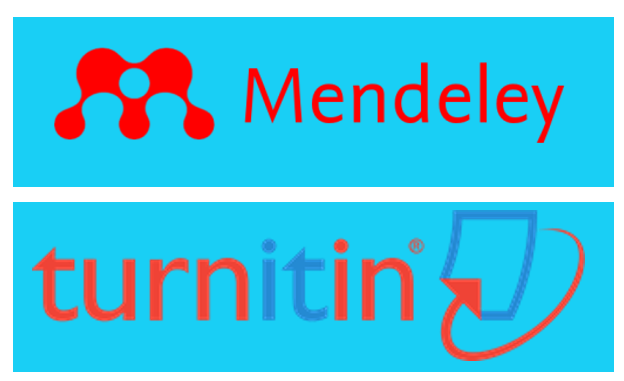Questioning the basic tenets of the American Constitution relating to justice and the rights of citizens in langston hughes’s let America be America again and freedom’s plow
DOI:
https://doi.org/10.32734/rjp28984Keywords:
African Americans, American constitution, Critical Race Theory, Human Rights, InjusticeAbstract
This article is aimed at demonstrating how the Constitution of the United States has failed to safeguard and protect the basic and inalienable rights of the American citizen, the African American in particular. It also analyzes and interprets the dreams of the American citizens through the perspective of Hughes in his poems. Indeed, at the elaboration and the implementation of the Constitution of the United States with its additional amendments in the 18th century, one of the basic tenets was justice and the protection of all the American citizens regardless of race and gender; however, in the American societies of the 20th century, the inalienable rights of some Americans, mainly Blacks were not granted or protected. Theoretically, critical race theory is used to analyze and interpret the data of the study. The qualitative method is employed in the process of collecting the study’s data. The results of the study have shown that the inalienable rights of the African Americans advocated by the Constitution of the United States and its related amendments were not reflected in society. Indeed, despite their citizenship, their inalienable civil rights were not fully protected, as the majority of them lived on the margins of society. In addition, they were prevented from attending high-profile schools and exercising some occupations reserved for the Whites. The results finally reveal that the dream of the ordinary African Americans was the restoration and the realization of the human rights principles inscribed in the Constitution of the United States through its additional amendments. This would guarantee justice and equal rights for all American nationals regardless of their gender and skin color.
Downloads
References
Bobo, L. D., & Fox, C. (2003). Race, racism, and discrimination: Bridging problems, methods, and theory in social psychological research. Social Psychology Quarterly, 66(4), 319–332. https://www.jstor.org/stable/1519832
Bureau of International Information Programs. (2011). Outline of US history. U.S. Department of State.
Coulibaly, A. S., & Coulibaly, Z. (2019). Immigration in the confluence of racial implications in African literature: A reading of Adichie’s Americanah. International Journal of English Literature and Social Sciences, 4(1), 1–6.
Coulibaly, Z., & Soro, A. (2024). Assimilation and radicalism of Black Americans as ramifications of racial segregation in Maya Angelou’s I Know Why the Caged Bird Sings. African Journal of Literature and Humanities, 5(4).
Douglass, F. (1845). Narrative of the life of Frederick Douglass, an American slave. Boston: Anti-Slavery Office.
Dualé, C. (2018). Langston Hughes’s poetic vision of the American dream: A complex and creative encoded language. Angles, 7. https://doi.org/10.4000/angles.920
El-Din Hassanein, M. S. (2015). The poet as teacher: The didactic element in Langston Hughes's Black poetry. Occasional Papers, 59.
Hall, S. (1990). Cultural identity and diaspora. In J. Rutherford (Ed.), Identity: Community, culture, difference (pp. 222–237). London: Lawrence & Wishart.
Hughes, L. (2012). Poems. Classic Poetry Series: The World’s Poetry Archive.
Jyoti, Y., & Kumar, V. (2018). Racial discrimination: A study of Langston Hughes’ poems. International Journal of Humanities and Social Science Invention, 7(8), 78–81.
Kanneh, K. (1998). African identities: Race and culture in ethnography, Pan-Africanism and Black literatures. London & New York: Routledge.
Malpas, S., & Wake, P. (2006). The Routledge companion to critical theory. London: Routledge, Taylor & Francis Group.
National Constitution Center. (n.d.). Constitution of the United States. https://constitutioncenter.org
Price, R., et al. (2020). Violence against Black people in America: A ClioVis timeline. Not Even Past. https://www.notevenpast.org/violence-against-black-people-in-america-a-clivis-timeline
Thompson, H. A. (2019). The racial history of criminal justice in America. Du Bois Review, 16(1), 221–241. https://doi.org/10.1017/S1742058X19000107
Tindall, G., & Shi, D. E. (2007). America: A narrative history (7th ed., Vol. 1). New York: W. W. Norton & Company.
Tyson, L. (2006). Critical theory today: A user-friendly guide (2nd ed.). London: Routledge.
Downloads
Published
Issue
Section
License
Copyright (c) 2025 Zakaria Coulibaly (Author)

This work is licensed under a Creative Commons Attribution 4.0 International License.
- Authors agree to publish their work under the Creative Commons Attribution 4.0 International (CC BY 4.0) license.
- Authors retain copyright to their work and may reuse or distribute it.
- HUMANIOLA reserves the right to request revisions and make final publication decisions.
- Authors are responsible for ensuring that their work does not infringe upon third-party copyrights.
- Archiving in digital repositories may be done for long-term access and preservation.






